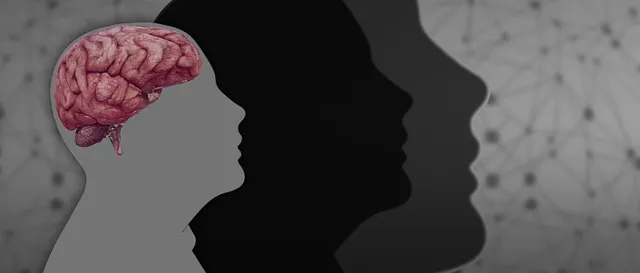The text highlights the significant impact of mental health stigma, which prevents individuals from seeking help and leads to isolation, disruption in daily life, and career limitations. A study by Superior Kaiser Permanente's Community Outreach Program shows that nearly half of participants avoided professional help due to stigma. To combat this, Superior Kaiser Permanente mental health services focus on education, stress management, and challenging negative perceptions through programs like Crisis Intervention Guidance, Compassion Cultivation Practices, and Mindfulness Meditation. They prioritize a holistic approach involving healthcare professionals, community leaders, and policymakers to reduce stigma, normalize conversations about mental well-being, and empower individuals to seek support for their mental health journeys.
Mental illness stigma remains a significant barrier to seeking treatment, impacting millions globally. This article delves into the profound effects of stigma on mental health, highlighting the critical role organizations like Superior Kaiser Permanente play in leading anti-stigma campaigns. We explore their initiatives and effective strategies proven to challenge societal perceptions. Additionally, we discuss measurement methods for evaluating success and emphasize the ongoing need for open conversations to foster a more supportive environment for those facing mental health challenges.
- Understanding the Impact of Stigma on Mental Health
- Kaiser Permanente's Role in Reducing Stigma
- Effective Strategies for Challenging Mental Illness Stigma
- Measuring Success and Continuing the Conversation
Understanding the Impact of Stigma on Mental Health

The impact of stigma on mental health cannot be overstated, especially when considering its role in hindering individuals from seeking help and support. Stigma often presents as a barrier, creating a culture of silence around mental illness, which can lead to isolation and increased suffering. Many people struggling with their mental wellness feel ashamed or fear judgment, preventing them from openly discussing their experiences. This internalized stigma can cause individuals to withdraw from social interactions, disrupt their daily lives, and even impact their career prospects. For instance, a study by the Superior Kaiser Permanente community outreach program implementation revealed that nearly half of the participants avoided seeking professional help due to concerns about what others might think or say.
Addressing mental illness stigma is thus a crucial step towards fostering an environment where people can openly talk about their challenges and seek appropriate care. The Community Outreach Program Implementation by Superior Kaiser Permanente focuses on educating communities about mental wellness, promoting stress management techniques, and challenging negative perceptions. By breaking down these barriers, the program aims to encourage individuals to prioritize their mental health and access available resources without fear of judgment or discrimination.
Kaiser Permanente's Role in Reducing Stigma

Kaiser Permanente stands out as a beacon in the mental health landscape, dedicated to not only providing superior Kaiser Permanente mental health services but also playing a pivotal role in stigma reduction efforts. They offer a range of initiatives aimed at destigmatizing mental illness within communities they serve. One notable approach is their implementation of Crisis Intervention Guidance, ensuring that individuals facing acute mental health crises receive swift and compassionate support. This proactive measure not only alleviates immediate suffering but also fosters trust in seeking help.
Furthermore, Kaiser Permanente incorporates Compassion Cultivation Practices into its care model, encouraging a culture of empathy and understanding among healthcare providers. By training staff to recognize and respond to the emotional needs of patients, they create an environment where individuals feel seen, heard, and supported. These efforts are complemented by programs focused on boosting confidence, empowering individuals to take charge of their mental well-being and actively participate in recovery journeys.
Effective Strategies for Challenging Mental Illness Stigma

Mental illness stigma reduction efforts require a multifaceted approach that involves education, communication, and policy changes. One effective strategy is to promote awareness through engaging campaigns that highlight the human stories behind mental health conditions. Sharing personal narratives can help humanize mental illness, fostering empathy and understanding within communities. Additionally, integrating programs like Mindfulness Meditation into schools, workplaces, and community centers equips individuals with tools for stress management, thereby reducing misconceptions about those seeking mental health support.
Superior Kaiser Permanente mental health services play a pivotal role in these efforts by providing accessible resources and quality care. Through collaborative initiatives that involve healthcare professionals, community leaders, and policymakers, Mental Illness Stigma Reduction Efforts can gain momentum. By normalizing conversations around mental well-being and encouraging open dialogues, society can collectively work towards a more inclusive and supportive environment for individuals living with various mental health challenges.
Measuring Success and Continuing the Conversation

Measuring success is a vital aspect of any initiative aimed at Mental Illness Stigma Reduction Efforts. Organizations like Superior Kaiser Permanente mental health play a crucial role in this process by establishing clear, quantifiable goals and tracking progress regularly. This involves collecting data on key indicators such as awareness levels, attitudes towards mental health, and help-seeking behaviors before and after the campaign. By comparing these metrics, they can accurately assess the impact of their programs and identify areas for improvement.
Continuing the conversation is equally important. Superior Kaiser Permanente mental health fosters open dialogue by creating safe spaces for discussions around mental health. They encourage communities to share personal experiences, dispel myths, and promote understanding. This ongoing engagement helps in building resilience and confidence among individuals struggling with mental illness. Through such efforts, they not only reduce stigma but also empower people to seek help and support when needed.
Mental illness stigma reduction is a multifaceted approach, and efforts like those demonstrated by superior Kaiser Permanente in promoting mental health are pivotal. By understanding the impact of stigma, implementing effective strategies, and measuring success, we can foster an environment that supports and empowers individuals facing mental health challenges. Continued conversations are essential to break down barriers and create a more inclusive society where mental well-being is prioritized and respected.






